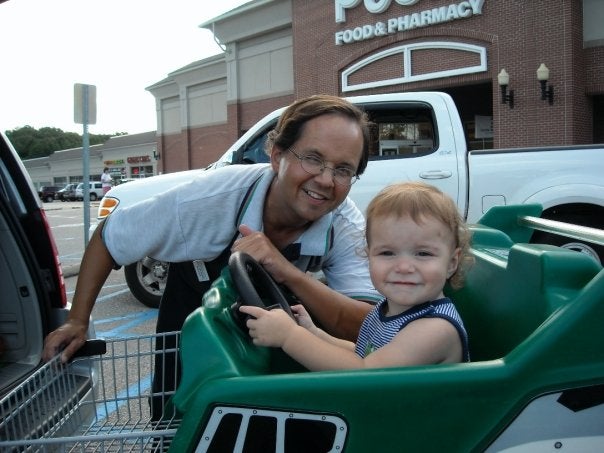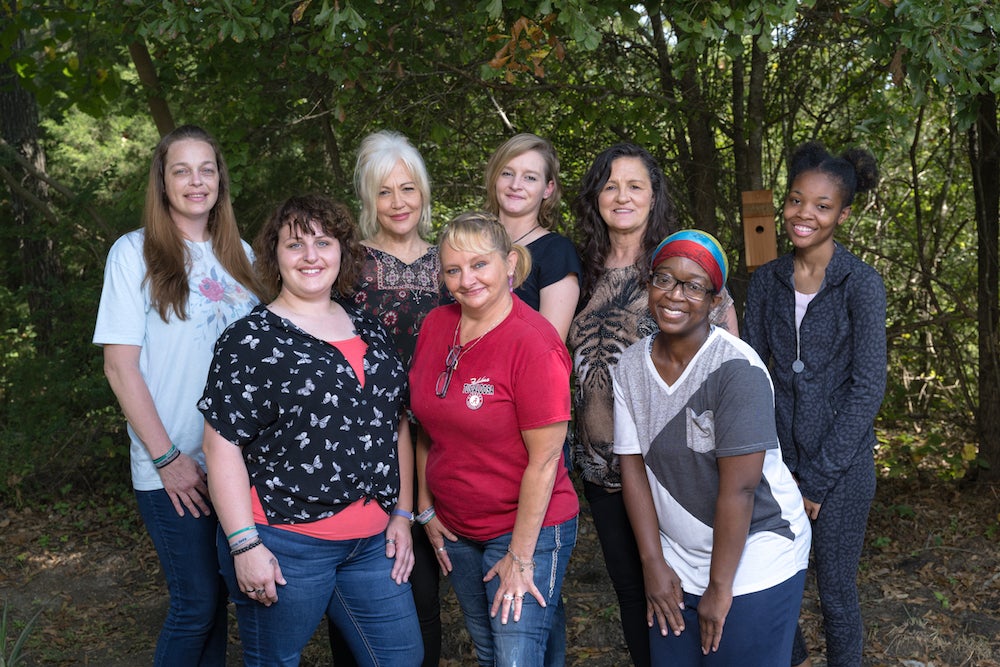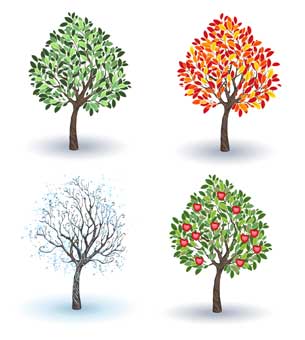By Madoline Markham
Photos Contributed
In a culture where everyone seems to be in a hurry all the time, there’s an exception at the Publix in Valleydale Village on Caldwell Mill Road. There you will often find all the lines empty except one, with around 10 people in it. Customers are all waiting longer than they need to for one reason: to say hi to Joey Hale.
To know Joey is to know his joy, his smile and his jokes. Joey never forgets a name, and seemingly everyone around him gravitates toward him.
Dana Abercrombie first reunited with Joey at Publix when her three sons were young. He’d bag her groceries and walk her to her car, and they’d reminisce about their days growing up as students at Saint Rose Academy.
Like many other customers, Dana knew his joy. But she also knew how it was all the more incredible given his back story—of a tragic car accident, of head trauma, of seven brain operations, of a year spent barely moving and not speaking—and of all the tales of triumph he had lived in the wake of so much struggle.
“I would see some people straight up ignore him, and I thought they might not realize that their bag boy at their local grocery store is probably one of the most amazing people they will meet in their entire life,” Dana recalls.
“Somebody has got to make a movie about you,” Dana finally told Joey one day as they walked to her car.
“Okay, when are we going to get started?” Joey asked.
And that’s just what they did.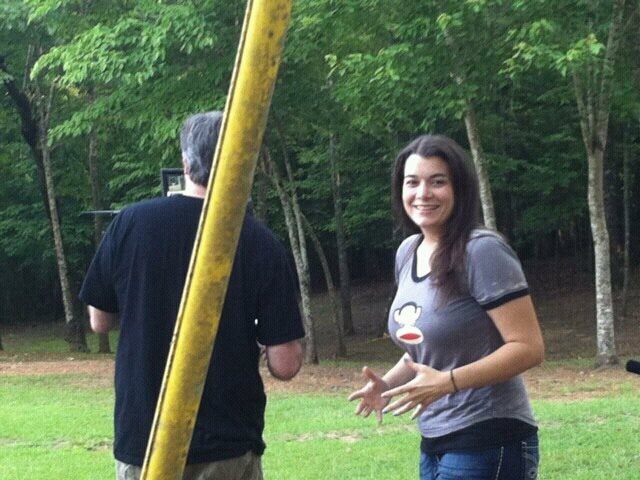
In Dana’s words, she was “just a stay-at-home mom and Publix customer,” but she’d always wanted to make films. Soon she was investing in professional camera equipment and connecting with sound engineers, film editors and other professionals to get on board with the project. More than anything, though, she had a passion to tell Joey’s story—one that’s just as strong 13 years into the project as it was that first day she told Joey about it in the Publix parking lot.
“Joey is doing all the work,” Dana says. “I just had to show up with a camera.” And show up the camera did, at the many jobs Joey was working a decade ago at Hamburger Heaven on 280, at Dana’s family’s restaurant Leonardo’s and at the Mountain Brook YMCA. Just like at Publix, the line to get a program from Joey before a worship service at the Church at Brook Hills is just as long, as the documentary footage shows.
Early in the documentation process, Dana asked Joey to write down the names of Publix customers who would want to be videoed for documentary just as he writes down customers’ prayer requests in a spiral-bound notebook he keeps in his pocket. Before long he had 700 names.
“Joey has so many things going wrong with him with tunnel vision, hearing aids, a speech impediment, balance issues, but he is so joyful and happy to be alive,” Dana says today. “It sets people’s sights where they need to be.”
Another breakthrough moment in the filmmaking process came eight years in when Dana uncovered a VHS tape in Joey’s parents’ basement that was the cinematic moment she’d been looking for the whole time.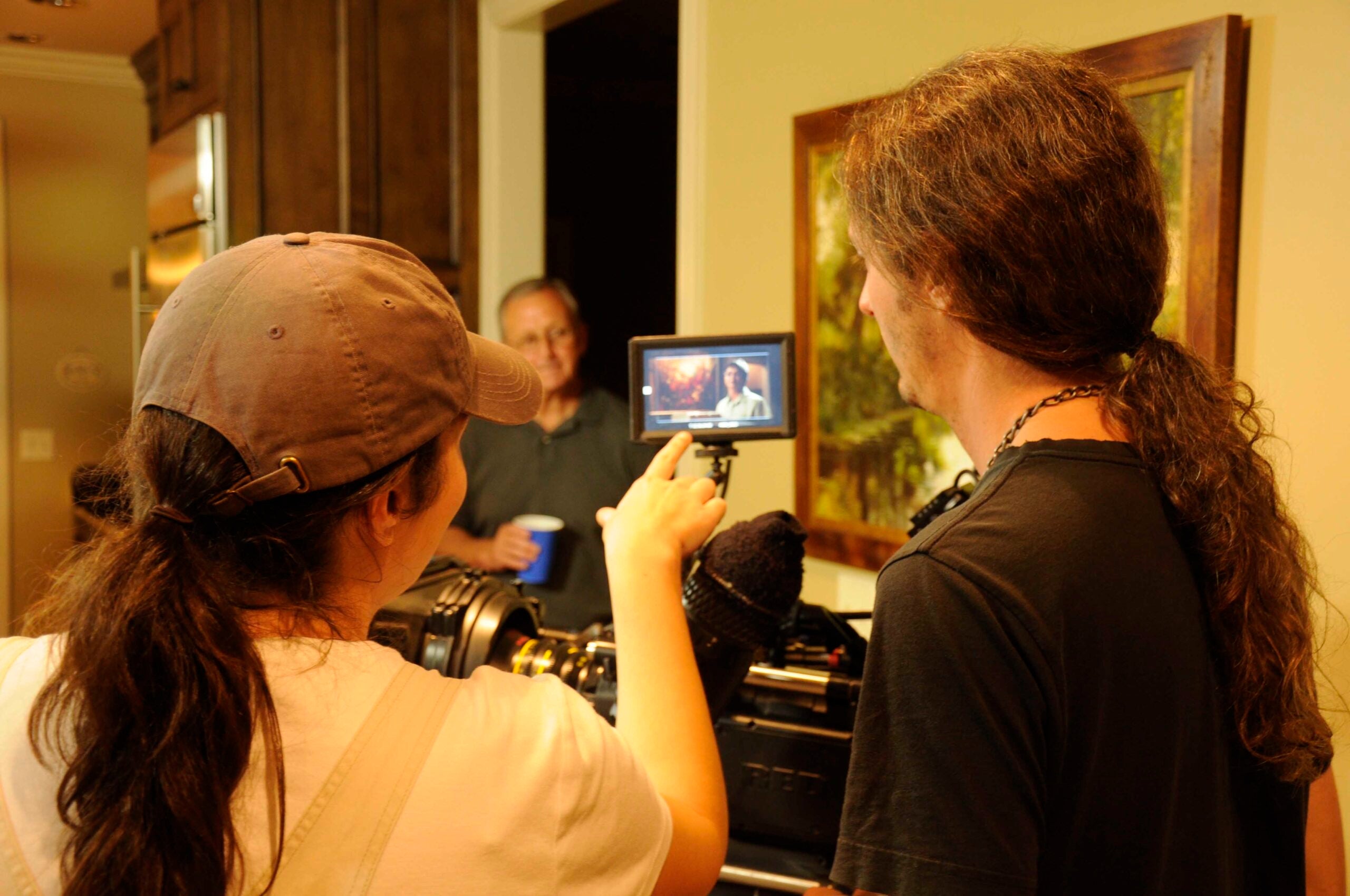
To understand its importance, you need some back story first: Joey’s family was in a hit-and-run car accident with a drunk driver when he was 4, leaving him with a skull fracture. Then at age 12 he was diagnosed with a brain tumor, and after several surgeries, a series of seizures sent him into a coma. After that he didn’t speak and barley moved for a year. As he was on long road of recovery from that time, a friend of a friend made a connection for him to visit his favorite NFL team, the San Diego Chargers, and in 1985 he went out to California to visit their practice.
On his visit he was in a wheelchair and could barely could lift his hand to give the players a high five. But he decided the next time he came to see the team he would walk across the field.
Joey came home with a will to live, and sure enough in 1986 he returned to the Chargers and walked across that field. The whole team stopped and cheered. And that was the footage Dana found eight years into her filmmaking.
Perhaps all the more notable plot point from those Chargers visits was the lifelong friendship Joey began with Chargers player Lionel James, a 5-foot, 6-inch running back who had shared the backfield with Bo Jackson when he played for Auburn. As fate would have it, Lionel’s brother got hit by a car when he was 8 years old and had to learn to walk again. “That’s tough when you see the frustration on people’s faces and they are trying say something and do something and they can’t do it,” Lionel notes. “I saw a lot of my family in (Joey’s) family.”
It was Lionel who had challenged Joey to come back in 1986, and Lionel credits Joey for inspiring his own then-NFL season records for receiving yards by a running back and all-purpose yardage in 1985. “He did more for me than I ever did for him,” Lionel says.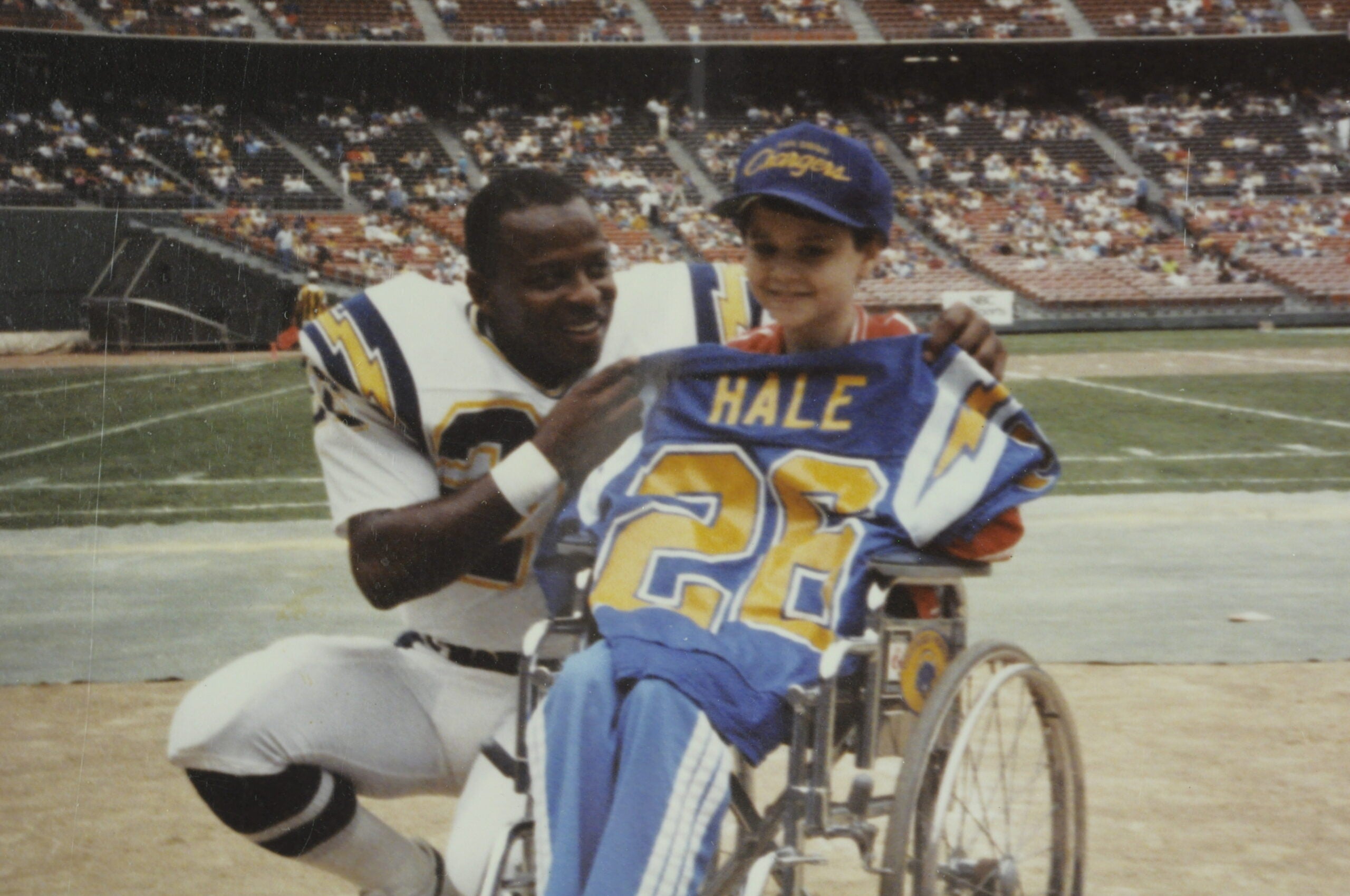
Dana’s documentary comes full circle with its footage of Lionel and Joey 35 years after their first meeting as they both speak at a prison ministry together. “I want incarcerated people to know that even if they have done the worst crime, they can be forgiven,” Joey says on the film.
Dana thought that moment might have been the ending of her movie, but little did she know when they filmed that scene that a worldwide pandemic would come, making grocery store workers frontline heroes. That was when she found her ending and began to wrap up the project. Today the film is in the final parts of the production process, and Dana and her team are fundraising to bring the film—which Dana refers to as her “fourth child”— to completion and pay for post-production costs through a partnership with a local nonprofit, the United for Life Foundation.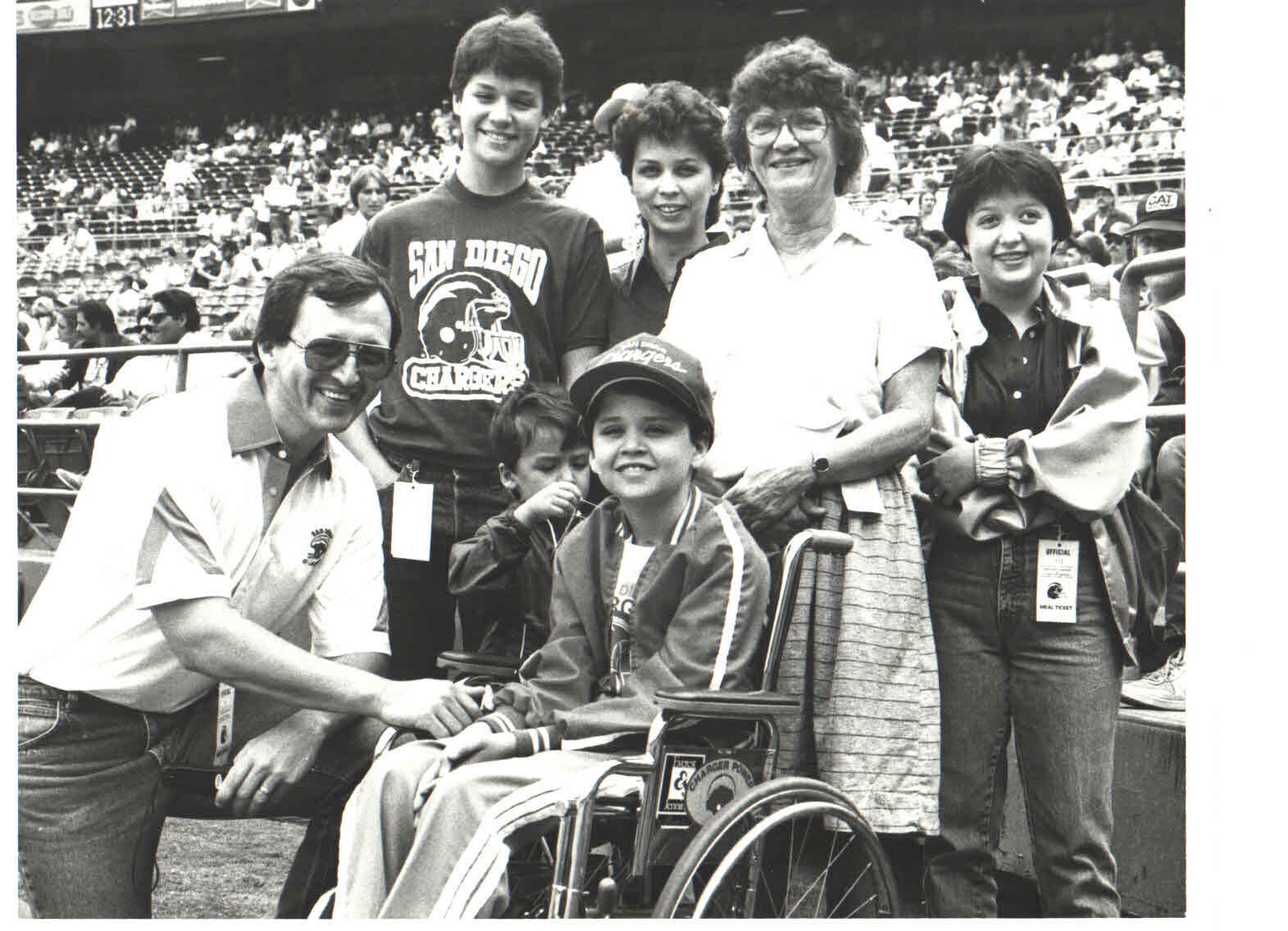
It’s Joey’s hope that the film restores lost faith for people and helps other families going through hard things as his family did, and Dana would love for it to be shown at film festivals where Joey could be a part of panels after showings. She wants the people there to see the twinkle in Joey’s eye and his sense of humor and drive to be alive that have drawn so many to him over his lifetime.
Joey and his family saw the finalized 57 minutes of the film for the first time this summer at Joey’s 50th birthday party, and “you could hear a pin drop,” Dana says. “They were laughing and crying, and they came up afterward with blood shot eyes.” They weren’t the only ones either.
“I still cry watching it,” Dana says. “I cry every time.”
Support the Film
You can donate to the Joey Hale documentary through the United for Life Foundation, a local nonprofit. Visit joeyhalemovie.com to see the trailer, make a donation and learn more about Joey’s story. You can also follow the “A Walk with Joey” page on Facebook for updates.

